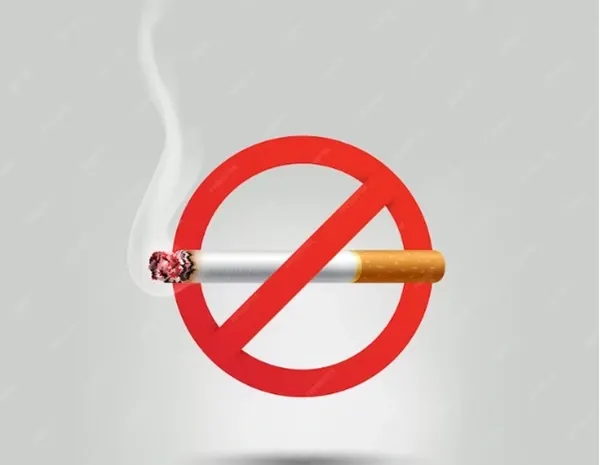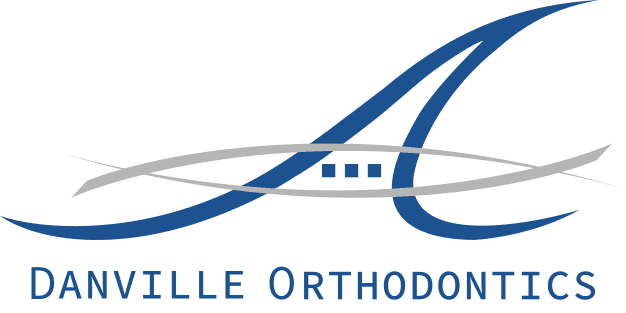Maintaining Oral Health During Orthodontic Treatment
Good oral health is important for everyone, but it becomes especially crucial when undergoing orthodontic treatment. Braces, aligners, and other orthodontic appliances can make oral hygiene more challenging. However, not taking care of your oral hygiene during this time can lead to many issues, from tooth decay and gum disease to longer treatment times and even damage to your orthodontic appliances. If you're considering getting orthodontic treatment, knowing you can maintain a healthy smile throughout the process is important.
Importance of Oral Health During Orthodontic Treatment
Maintaining optimal oral health is paramount, especially when undergoing orthodontic treatment. Some Orthodontic appliances, such as braces, can create additional challenges in keeping the teeth and gums clean. Improper oral hygiene during orthodontic treatment can lead to many issues, including tooth decay, gum disease, and discoloration. Therefore, prioritizing oral health habits is essential to ensure successful treatment outcomes and prevent complications.
- Preventing Tooth Decay: Orthodontic appliances create small spaces where food particles and plaque can quickly accumulate. Without diligent oral hygiene, these areas become breeding grounds for bacteria, leading to dental caries (cavities).
- Protecting Gum Health: Inadequate oral hygiene during orthodontic treatment can increase the risk of gum inflammation and periodontal disease. If not treated, plaque buildup around braces or aligners can cause gum irritation, leading to gingivitis and periodontitis.
- Minimizing White Spot Lesions: White spot lesions, also known as decalcification, can develop on the enamel surface of teeth when plaque acids demineralize the tooth structure. Orthodontic appliances make it challenging to clean specific areas of the teeth, increasing the risk of white spot lesions.
- Facilitating Tooth Movement: Good oral health is essential for facilitating tooth movement and achieving optimal treatment outcomes during orthodontic therapy. Healthy gums and supportive bone structures provide a stable foundation for orthodontic appliances to exert gentle pressure on the teeth, guiding them into proper alignment. Poor oral hygiene can compromise the effectiveness of treatment and prolong the duration of orthodontic therapy.
- Enhancing Aesthetic Results: Maintaining excellent oral health throughout treatment ensures the teeth remain healthy, vibrant, and free from unsightly stains or discoloration. A healthy smile complements the aesthetic results achieved through orthodontic intervention.
Brushing Techniques and Tools
Effective brushing techniques and appropriate tools are essential for oral health during orthodontic treatment. Orthodontic appliances can create areas where food particles and plaque quickly accumulate, increasing the risk of tooth decay and gum disease. Therefore, mastering proper brushing techniques and selecting the right tools can help ensure thorough cleaning and prevent oral health issues.
- Choosing the Right Toothbrush: Select a toothbrush with soft bristles to avoid irritation to the gums and enamel. For individuals with braces, consider using a toothbrush with a smaller head to effectively reach all areas around the brackets and wires.
- Orthodontic Toothbrushes: Specialized orthodontic toothbrushes feature V-shaped bristles or bristle patterns designed to clean around brackets and wires more efficiently. These toothbrushes may also have a combination of bristle lengths to reach difficult-to-access areas.
- Interdental Brushes: Interdental brushes, also known as proxy brushes, are handy tools for cleaning between braces and wires. They come in various sizes to fit different gaps and can effectively remove plaque and food debris from hard-to-reach areas.
- Water Flossers: Water flossers use water to remove plaque and food particles from around orthodontic appliances. They are handy for individuals who struggle with traditional flossing techniques.

- Electric Toothbrushes: Electric toothbrushes with oscillating or rotating brush heads can provide more thorough cleaning than manual brushing, making them a convenient option for individuals undergoing orthodontic treatment.
- Brushing Technique: Hold the toothbrush at a 45-degree angle towards the gumline and brush gently in small circular motions. Pay extra attention to areas around brackets, wires, and gum margins. It's important to be thorough and gentle when cleaning your braces to prevent any damage or irritation to your gums.
Choosing the Right Diet During Orthodontic Treatment
A healthy diet is important for overall health but becomes even more critical during orthodontic treatment. Certain foods can challenge individuals with braces or other orthodontic appliances, increasing the risk of hardware damage or treatment complications. Therefore, making wise dietary choices is essential to protect your orthodontic investment and promote oral health throughout the treatment process.
- Soft Foods: Opt for soft, easy-to-chew foods that won't put excessive pressure on your braces or cause discomfort. Examples include mashed potatoes, yogurt, scrambled eggs, soups, and smoothies. These foods are gentle on the teeth and braces, making them ideal choices, especially after adjustments or when experiencing soreness.
- Avoid Hard and Sticky Foods: Avoid hard, crunchy, or sticky foods that can damage braces or get stuck in orthodontic appliances. Foods like nuts, hard candies, popcorn, ice cubes, and chewing gum should be avoided to prevent broken brackets, bent wires, or other orthodontic emergencies.
- Cut Food into Small Pieces: Cut fruits and vegetables into smaller pieces to reduce the risk of damaging braces. Avoid biting hard or crunchy foods.
- Drink Plenty of Water: Water is the best beverage for maintaining hydration and rinsing away food particles and bacteria from the mouth. Drink water, especially after meals, to help keep your mouth clean and prevent plaque buildup around braces.
- Follow the Orthodontist's Recommendations: Your orthodontist may provide specific dietary guidelines or restrictions based on your treatment plan. Follow their recommendations closely for the best possible outcomes and minimize the risk of complications during orthodontic treatment.
Avoiding Harmful Habits During Orthodontic Treatment
Orthodontic treatment requires careful attention to oral hygiene and appliance care to ensure successful outcomes. However, certain habits can interfere with the effectiveness of treatment, prolong treatment duration, or even damage orthodontic appliances. Therefore, it's essential to be mindful of these habits and consciously avoid them during orthodontic treatment.
- Chewing on Hard Objects: Avoid chewing on hard objects such as ice, pens, pencils, or fingernails, as this can damage braces or cause brackets to come loose. Biting down on hard objects can bend wires, dislodge brackets, or even break orthodontic appliances, disrupting treatment progress.
- Nail Biting: Nail biting is a widespread habit that can exert unnecessary pressure on braces and potentially damage them. Additionally, biting nails can introduce harmful bacteria into the mouth, maximizing the risk of oral infections or complications during orthodontic treatment.
- Chewing Gum: Chewing gum is not recommended during orthodontic treatment, as it can stick to braces, wires, or aligners, making cleaning difficult. Sticky gum residue can accumulate plaque and food particles around orthodontic appliances, increasing the risk of tooth decay and gum disease.
- Using Teeth as Tools: Avoid using your teeth to open packages, tear open bags, or perform other tasks that strain braces unnecessarily. Using teeth as tools can weaken brackets, bend wires, or cause other damage to orthodontic appliances, compromising treatment effectiveness.
- Smoking and Tobacco Use: Smoking and tobacco use can have severe effects on dental health, including staining teeth, increasing the risk of gum disease, and delaying healing after orthodontic procedures. Additionally, smoking can interfere with the movement of teeth during orthodontic treatment, potentially prolonging treatment duration.

- Poor Oral Hygiene Habits: Neglecting oral hygiene habits such as brushing and flossing daily can lead to plaque buildup, tooth decay, and gum disease, particularly around orthodontic appliances. Maintaining a diligent oral hygiene routine and following your orthodontist's recommendations for cleaning braces or aligners are important to ensure optimal oral health during treatment.
Emergency Care Tips During Orthodontic Treatment
Orthodontic emergencies, such as broken braces or wires, can occur unexpectedly and require quick attention to prevent discomfort, injury, or treatment setbacks. Knowing how to handle orthodontic emergencies effectively can minimize the impact on your treatment progress. Here are some emergency care tips to keep in mind:
- Contact Your Orthodontist: In an orthodontic emergency, the first step is to contact your orthodontist as soon as possible. Your orthodontist can guide you over the phone and schedule an appointment to resolve the issue.
- Temporary Relief: If you're experiencing discomfort or irritation from broken braces or wires, temporary relief measures can help alleviate symptoms until you can see your orthodontist. Use orthodontic wax to cover any protruding wires or sharp edges irritating the cheeks, lips, or tongue.
- Loose or Broken Brackets: If a bracket becomes loose or detached from a tooth but is still attached to the wire, leave it in place and cover it with orthodontic wax to prevent further movement or discomfort. If the bracket has completely detached, keep it safe and bring it to your orthodontic appointment for reattachment.
- Follow Orthodontist's Instructions: Follow any instructions your orthodontist provides for managing orthodontic emergencies until your scheduled appointment. They may recommend additional measures or adjustments based on your situation.
Contact your Danville dentist, Dr. Hoss Abar, DDS, MSD, at Danville Orthodontics to learn more about Maintaining Oral Health During Orthodontic Treatment.
Resource:
How you can benefit from surgical orthodontics?
*Neither this nor any other content in this media is meant to prescribe, recommend, or prevent any treatment or procedure. We highly suggest that you get the advice of a qualified dentist or other medical practitioners regarding your specific dental condition.
